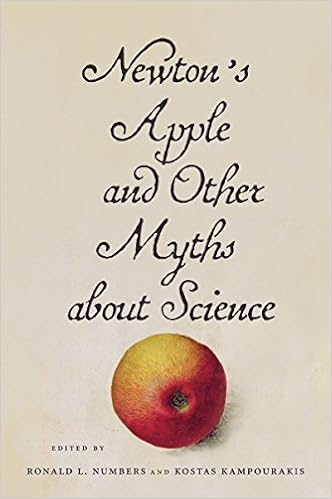Odd, and it speaks very poorly of the science of the day. But one historian says that the historical data demonstrate that view.
 Further to the new science mythbuster book, Newton’s Apple and Other Myths About Science, a reader kindly notes that we also learn from the paywalled review in Science:
Further to the new science mythbuster book, Newton’s Apple and Other Myths About Science, a reader kindly notes that we also learn from the paywalled review in Science:
Michael Gordin … [debunks] the widely accepted belief that science can be easily differentiated from pseudoscience simply by determining whether a particular theory is falsifiable. In addition to the philosophical shortcomings of this approach, he notes that if a negative result is sufficient to falsify a theory, then high-school science students manage to “falsify” most of Western science each week in their lab classes. Gordin goes on to analyze why this particular idea rose to such prominence in the 1980s. When various U.S. states legislated that creationism get equal time in school science classes, it became politically urgent to define why creation “science” was nothing of the kind. Part of the appeal of the falsification axiom (if it could never be disproved, it can’t be science) was that it was simple enough for nonscientists to grasp. Yet, when we look at history, falsification simply does not work as a definition of science. As Gordin explains, most historians and scientists accept a sociological definition: Science is what the scientific community says it is (e.g., peer-reviewed work in reputable journals). It’s not a perfect definition, nor a stable one, but it has the virtue of being the one by which scientists actually operate.
So whatever peers say is science is, and evidence is irrelevant?
And now they don’t want falsifiability because favoured theories don’t make the cut, right?
Given the state of peer review today, that’s part of the problem that physicists are anguishing over now.
Should string theory be accepted as science, without falsifiability, because boffins say it is cosmology’s free non-falsifiable lunch?
Note the sneer at “non-scientists.”
Just a minute here. If historian Gordin is right, many only agreed to the falsifiability criterion in the first place for political reasons—and now want to get rid of it… also for political reasons?
The problem is, of course, falsifiability was never thought of by most people as a “definition” of science, but more of an alarm system that non-scientists could use when things were going hairball.
When scientists want the alarm turned off, they lose a reputation for evidence-based thinking, along with credibility and moral authority. They may as well forget the science, join a Darwin trollblog (and specialize in creative profanity) or a crackpot cosmology site and do great graphics.
See also: Physicist: We can only argue positions based on philosophy The problem is that the philosophy that prevails gets to call itself “science” and decide what is or isn’t evidence and whether it matters. And that could just come down to a vote.
Follow UD News at Twitter!